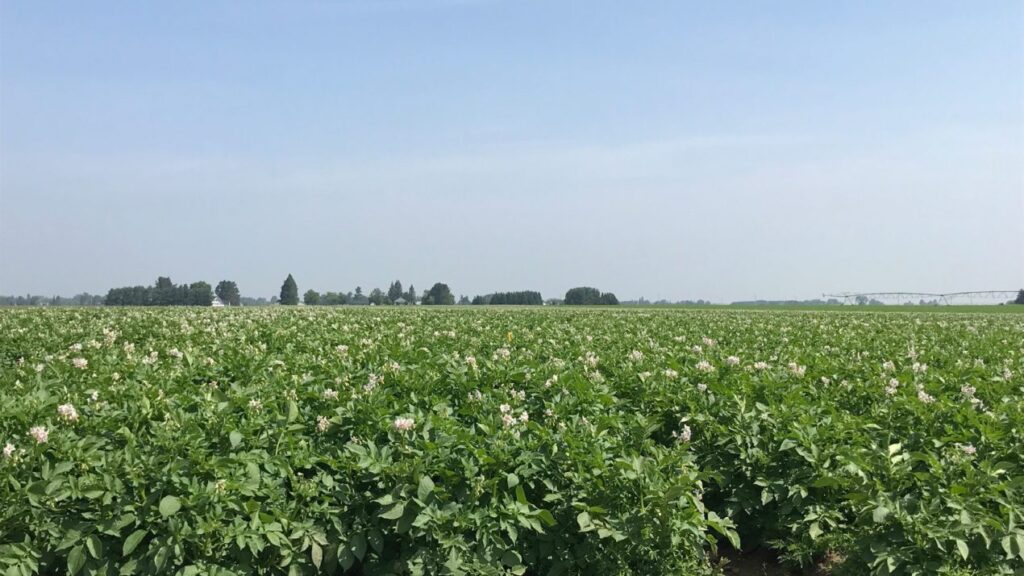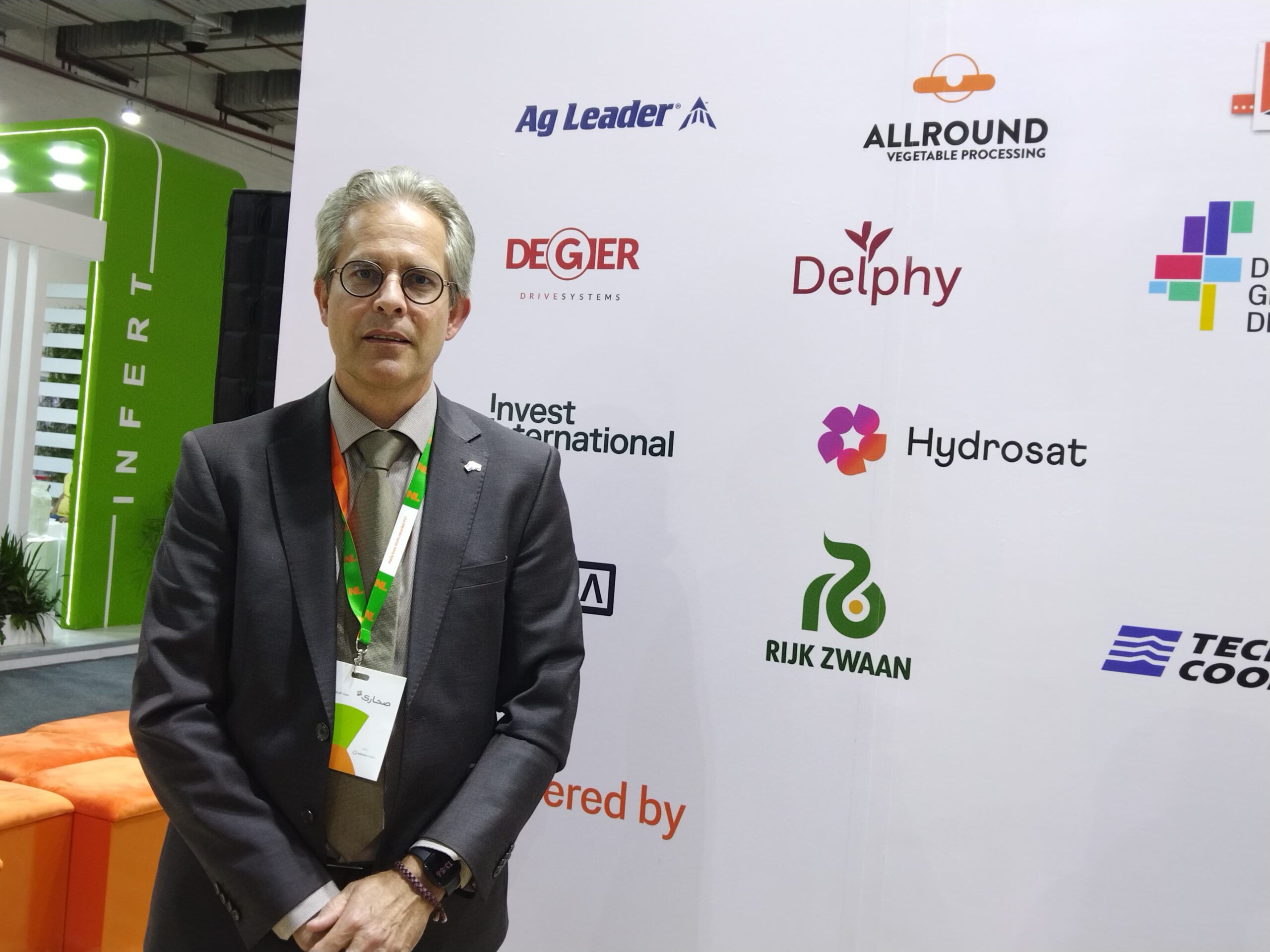Food & Climate
Netherlands has been suffering weather extremes resulting in less seed potatoes , “and this reduced mostly our export volumes and to a lesser extent the whole industry” in recent years, according to A Dutch official.
Tycho Vermeulen, the agricultural counselor to Egypt and Jordan, said to “Food & climate” platform: “Netherlands has always both imported and exported potatoes. It is a dynamic, multinational business”.
“Now In Holland we face issue at this time. We have less seed potatoes, that is quit extremes but the climate change brings those extreme”, he added.
So, we integrate with other markets like Arab Republic of Egypt, that we import potatoes from and we help Egypt to develop all seed potatoes, Vermeulen added on the sidelines of the Sahara Exhibition in Cairo this week.
Our country is a leader in agriculture, and it is the biggest agricultural hub in the world. We support Egypt and export a lot to it and import a lot from Egypt, especially the vegetables like beans, Brookly, and potatoes.
Seed potatoes
Tycho Vermeulen, the Dutch agricultural counselor to Egypt and Jordan, said: “We produce a lot of seed potatoes and Egypt plant potatoes using these seeds, then it goes back to Netherlands. This is a big interaction between the two countries”.
Vermeulen explained some of the climate change phenomena that have affected seed potatoes and agriculture in general.
We have the similar issue like delta region in Egypt, that is salinity.
Egypt has more extremes salinity in some areas like Alex and Kafr Elshikh. So, that is interested to work together.
Netherland is very wet but salinity is big issue, and Egypt suffers from the draught.
The climate change is a global issue, he said.
Sometimes there is a shortage of water and another times there is overflow of water, he continued.
Indeed, the whole of Holland is Delta and the north of the country suffers from salinity.
Salinity is noticed also that it is increasing in two provinces in south Holland.
“We treat with this issue, and work on large scale and invest heavily in our agriculture”, Vermeulen said.
Our companies more effective in resilience, and more tolerant Varity.
Company like the “Salt Doctors” has strategy and deals with salinization.
The Salt Doctors specialize in creating and implementing resilient farming systems. for salt-affected areas, according its website.
Salinity is not the only climate change problem that my country is facing and affects agriculture, there is another one is the temperature change.
Despite we have too much water, it is not enough water.
We see the temperature rise effects on crop choice and salinity also effects crop choice.
We increased our investment very much to face the effects of climate change on foods production in recent years.

Knowledge and innovation
Tycho Vermeulen, the Dutch agricultural counselor to Egypt and Jordan, said: “We as a country foxes on knowledge and put the investment in this through universities, Research and development, and subsidies to companies to develop knowledge and practical knowledge on tackling climate change”.
“The good response for anything is knowledge and collaboration. So, as I mention that we collaborate with universities and companies to challenge this bigger issue”, he added.
The government role comes along the subsidies program and direct knowledge.
“This off course in not direct investment in agriculture because our government does not interfere in the food systems, but helps by indirect investment and subsidies, and guarantees that everybody has equal opportunity. Farmers innovations only get subsidies”.
Farmers come together to develop new technologies to face the climate change.
But the government invest heavily to assure dealing with the climate change like higher sea level and fluctuation in sweet water.
In the Netherlands there are no farmers’ protests against the cost of combating climate change like in some European countries. We do not make decisions without community discussion.

